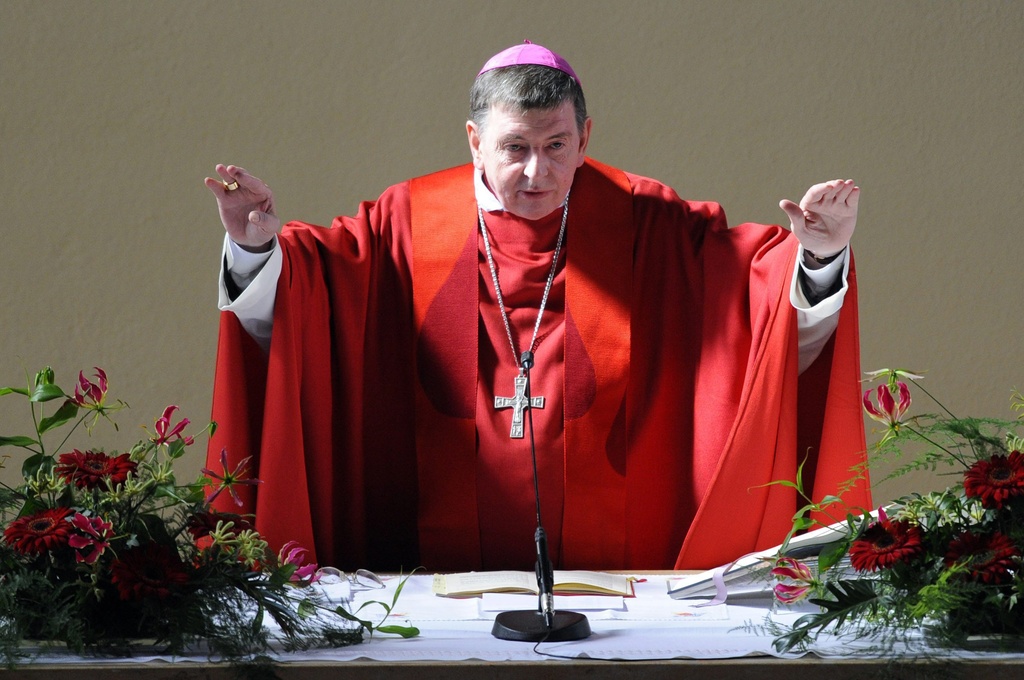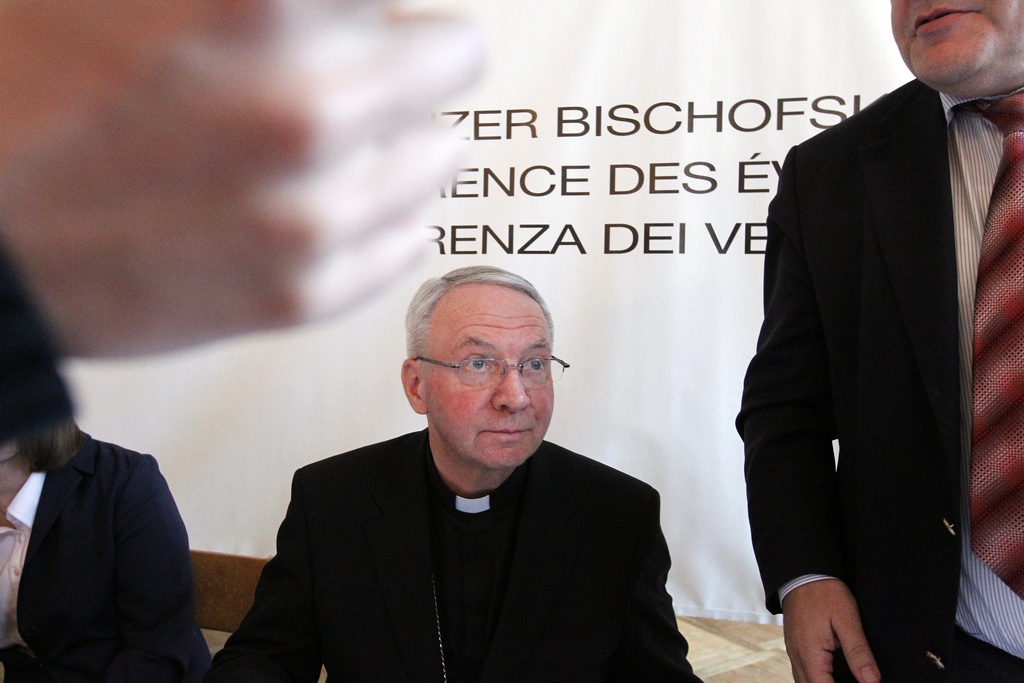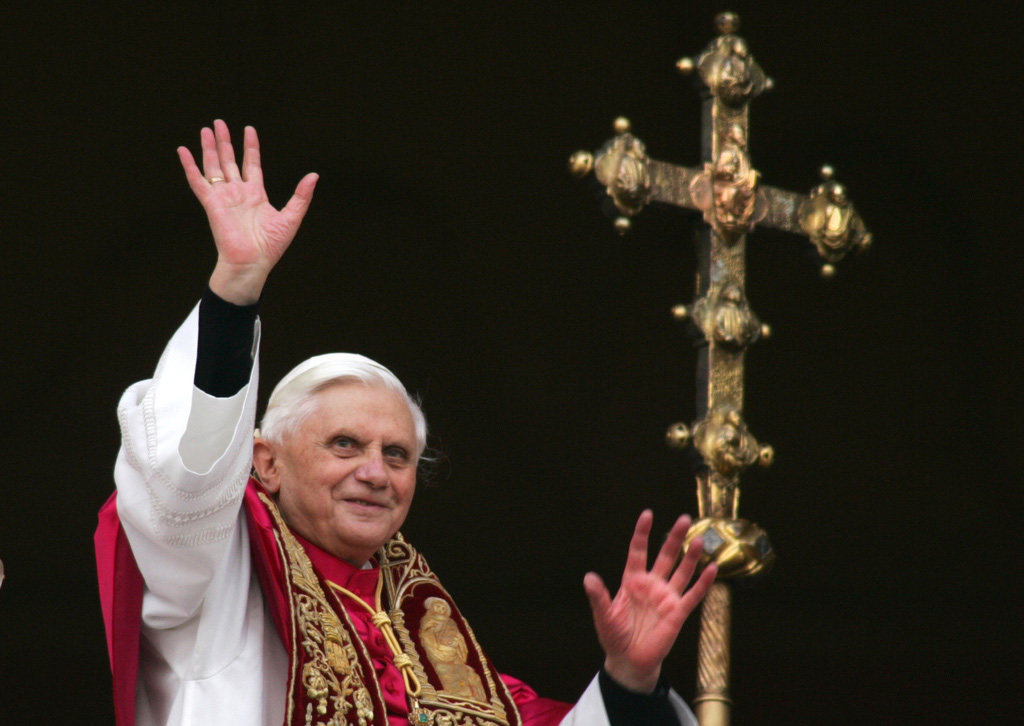Swiss bishop takes up top Vatican post

Swiss Bishop Kurt Koch has taken up an important post at the Vatican, advising the pope on his dealings with other Christian churches.
It is the first time in recent decades that a Swiss bishop has held a top Vatican position. It is expected that Koch will soon be elevated to the position of cardinal.
The announcement on Wednesday was good news for the Swiss Church, which has had a negative press in recent months as the extent of sex abuse cases involving clergy has come to light. The diocese of Basel has recorded the highest number of abuse cases of all the Swiss bishoprics.
Koch was named as head of the Pontifical Council for Promoting Christian Unity. Created in 1989, the Council has its roots in the Second Vatican Council and the wish of Pope John XXIII that the Catholic Church should be involved in the ecumenical movement.
“On the one hand it is not easy to leave a diocese after 15 years. On the other hand it is a new challenge and a nice one, as ecumenism has always been close to my heart,” the 60-year-old bishop told Swiss television.
Recognition
The announcement of Koch’s call to Rome was welcomed by the diocese of Basel.
“It is undoubtedly an extraordinary distinction that has been conferred on Bishop Kurt Koch and we should also see it as a recognition of the efforts towards ecumenism made in our country,” said Vicar-General Roland-Bernhard Trauffer.
And the news was also well received in Rome. Mario Galgano, a journalist at Vatican Radio, told swissinfo.ch Koch would bring ideas to the post.
“His dealings and dialogue with the Protestant churches in Switzerland will be valuable at the Vatican where, it must be said, few people understand the complexity of the problem,” he said.
In a statement, the Federation of Swiss Protestant Churches congratulated Koch. As president of the Swiss Bishops Conference, he had been a “persistent” advocate of dialogue and debate, it said.
Markus Ries, a doctor of theology at Lucerne University, said Koch’s appointment was no surprise. He described the bishop as an “excellent theologian” who has written many publications on ecumenism and taken part in dialogue with other churches. He also pointed to Koch’s experience as a bishop in a diocese which has faced difficulties.
Although the Swiss Catholic Church is regarded as relatively progressive and independent, Ries said it was “as far from, and as close to the Vatican as other churches”.
Ries said he expected Koch to be a close confidant of the pope because of their common interest in furthering relations with other churches, and a shared attitude to life. “Koch and Benedict XVI are theologians from the bottom of their hearts,” he said.
“The pope told me he needed a bishop in this post who did not just know the Reformed churches from what he had read but from personal experience, and you can conclude from that dialogue with the Reformed churches is also very close to his heart,” said Koch.
Ries said he thought the Swiss bishop would “widely influence” the pope.
“I expect a considerable improvement in treating church affairs – better communication… Archbishop Koch until Wednesday lived very close to the everyday life of a modern society,” he said.
“One true Church”?
The pope has been accused of not doing enough to promote dialogue with the Reformed churches.
In 2007 the papal Congregation for the Doctrine of the Faith published a document in which it was stated that the Protestants should be regarded not as a church but simply as “church communities”. The document was approved by Pope Benedict.
The reason for this distinction is that Protestants and other Christian communities, not recognised by the pope, cannot claim to follow the “apostolic succession”. According to Catholic teaching, popes and bishops can claim to be the successors of the first apostles. For this reason, the Roman Catholic Church is “the one true Church”.
Yet the pope has shown himself conciliatory towards another Christian group, the ultra-conservative Society of St Pius X. They are considered part of the Catholic Church and recognise the pope as head of the Church.
Last year the pope lifted the excommunication of four bishops of the Pius brotherhood. The announcement triggered condemnation from Jewish groups as one of the four was Richard Williamson, who has made statements denying the full extent of the Holocaust.
The pope also made overtures towards the Anglicans, offering them admission to the Catholic Church under “special conditions”.
These conditions would include the possibility of married Anglican priests serving in the ranks of Catholic priests.
But the ordination of women – something Bishop Koch argued for in the 1990s – is still a step too far for Pope Benedict.
Morven McLean, swissinfo.ch (With input from Eveline Kobler)
Number of Catholics: 3,380,000
Number of dioceses: 6
Number of priests: 1,607 (including 209 working abroad)
Number in religious orders: 5,203 women and 1,479 men

In compliance with the JTI standards
More: SWI swissinfo.ch certified by the Journalism Trust Initiative



You can find an overview of ongoing debates with our journalists here. Please join us!
If you want to start a conversation about a topic raised in this article or want to report factual errors, email us at english@swissinfo.ch.